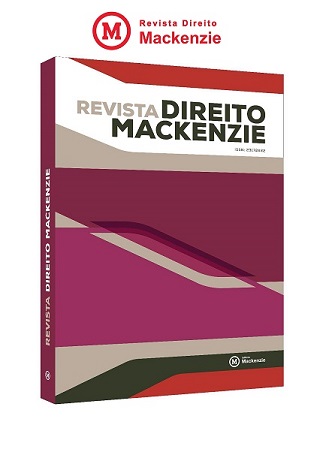THE PASSAGE FROM FORDISM TO POST-FORDISM AND THE IMPACT ON PUBLIC POLICIES IN BRAZIL
DOI:
https://doi.org/10.5935/2317-2622/direitomackenzie.v15n214784Keywords:
Fordismo; pós-fordismo; políticas públicas.Abstract
This work aims to analyze the rationalization of the formulation of
public policies in Brazil, a logic of Fordist intervention, in the period of a political
economy of reduced spending, characteristic of post-Fordism. The research
problem is to understand the relationship between developmental and sectoral
public policies, typical of a developmental State and of a Directive Constitution,
and a historic moment of the opening of national markets in the field of public
services. The objective is to analyze the perspective of restricting spending on
public services in times of crisis of capital, even more evident during the Covid-19
pandemic. The methodology followed the technique of bibliographic review in
the framework of the French regulation theory and in the debate on the derivation
of the State. It is concluded that the moments of crisis forced the logic of a
remote regulatory state with high social costs.
Downloads
Published
Issue
Section
License
Copyright (c) 2021 Luiz Ismael Pereira, Mariana Resende

This work is licensed under a Creative Commons Attribution 4.0 International License.
The copyright of the articles published in Mackenzie Law Review belongs to the authors, who grant Mackenzie Presbyterian University the rights of publication of the contents, and the assignment takes effect upon submission of the article, or work in similar form, to the electronic system of institutional publications. The journal reserves the right to make normative, orthographic, and grammatical alterations to the originals, with the aim of maintaining the cultured standard of the language, respecting, however, the style of the authors. The content reported and the opinions expressed by the authors of the articles are their exclusive responsibility.











